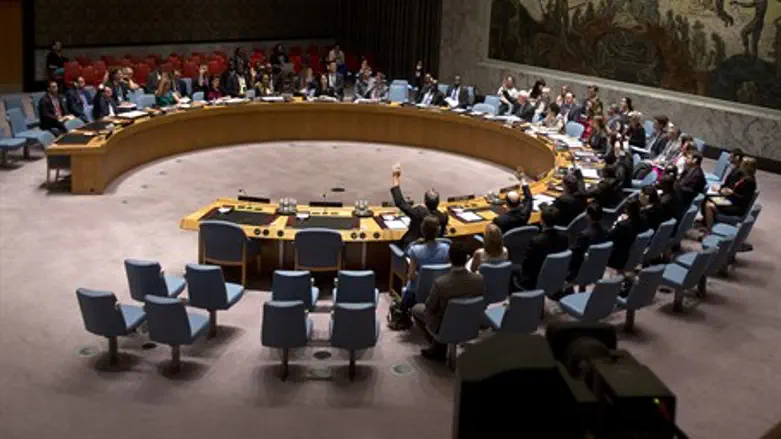
France asked the UN Security Council Thursday to authorize countries to "take all necessary measures" to fight the Islamic State (ISIS) group after the jihadists claimed responsibility for the Paris attacks.
A draft resolution presented to the 15-member council called on UN member states to "redouble and coordinate their efforts to prevent and suppress terrorist acts" committed by ISIS and other extremist groups linked to Al-Qaeda.
The French draft resolution does not provide any legal basis for military action and does not invoke chapter seven of the UN charter that authorizes the use of force.
French diplomats maintain, however, that it will provide important international political support to the anti-ISIS campaign that has been ramped up since the attacks in Paris on Friday that left 129 dead.
"The exceptional and unprecedented threat posed by this group to the entire international community requires a strong, united and unambiguous response from the Security Council," French Ambassador Francois Delattre said.
"This is the goal of our draft resolution, which calls on all member states to take all necessary measures to fight Daesh," he added, using the Arabic acronym for ISIS.
Delattre said he was seeking rapid approval of the draft resolution that was "put in blue" -- a UN term designating that a final version is ready for a vote at the Security Council.
France's bid for UN backing came after Russia submitted a revised text of a separate draft resolution that calls for fighting the IS group with Syria's consent.
That draft has been rejected by the United States, Britain and France, which are refusing to cooperate with President Bashar Al-Assad's regime, whom they accuse of fomenting extremism by resorting to brutality.
British Ambassador Matthew Rycroft, whose country chairs the council this month, said the Russian measure "seeks to legitimize the authority of Assad" and added that it did "not have much prospect."
The French draft text describes ISIS as a "global and unprecedented threat to international peace and security" and said sanctions would soon be imposed against IS group leaders and supporters.
The text "unequivocally condemns in the strongest terms the horrifying terrorist attacks" by the Islamic State group in Paris and Beirut, and also mentions violence in Tunisia, Turkey and Egypt this year.
Earlier this week, Russian President Vladimir Putin and French President Francois Hollande agreed to step up cooperation between their military in Syria against ISIS, after the attacks in Paris and bombing of a Russian plane.
"It has been agreed to assure closer contact and coordination between the military and security service agencies of the two countries in actions against terrorist groups by Russia and France in Syria," the Kremlin said in a statement following a phone call between Putin and Hollande.
Putin also on Tuesday ordered the Russian navy in the Mediterranean to establish contact with its French counterparts and work together "as allies" in a campaign against the ISIS group in Syria.
Russia just on Tuesday officially announced that the Russian airliner downed in Sinai several weeks ago killing 224 people was caused by a bomb planted by terrorists.
ISIS claimed responsibility for the attack, which came after Russian stepped up its military presence in Syria, bombing ISIS while propping up Assad.
AFP contributed to this report.
